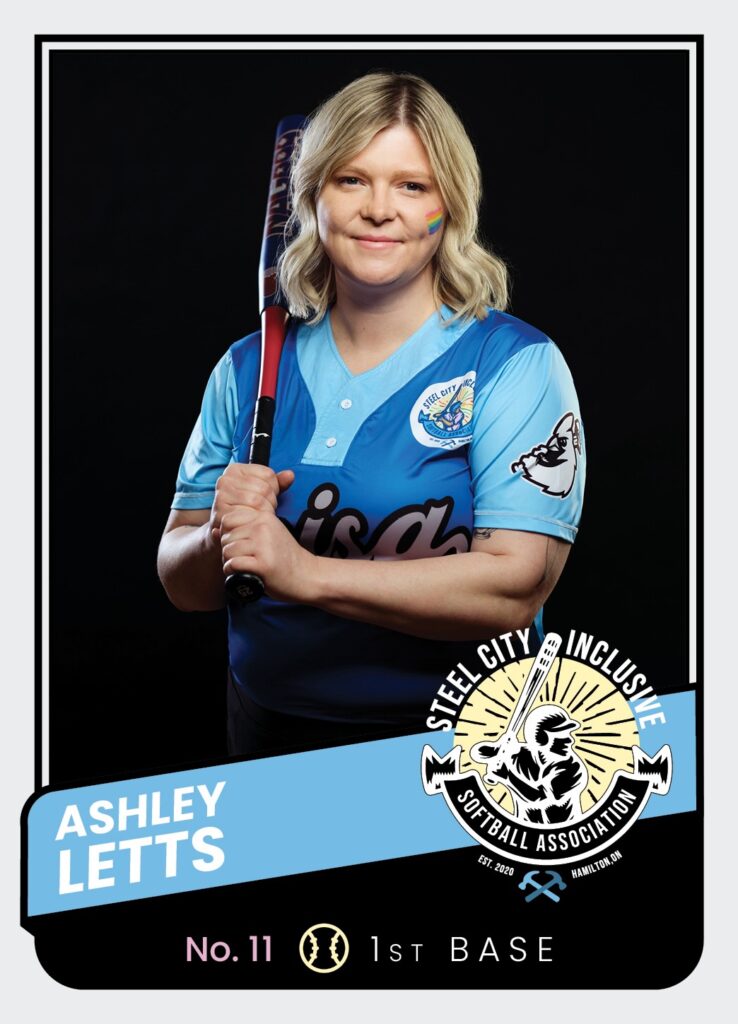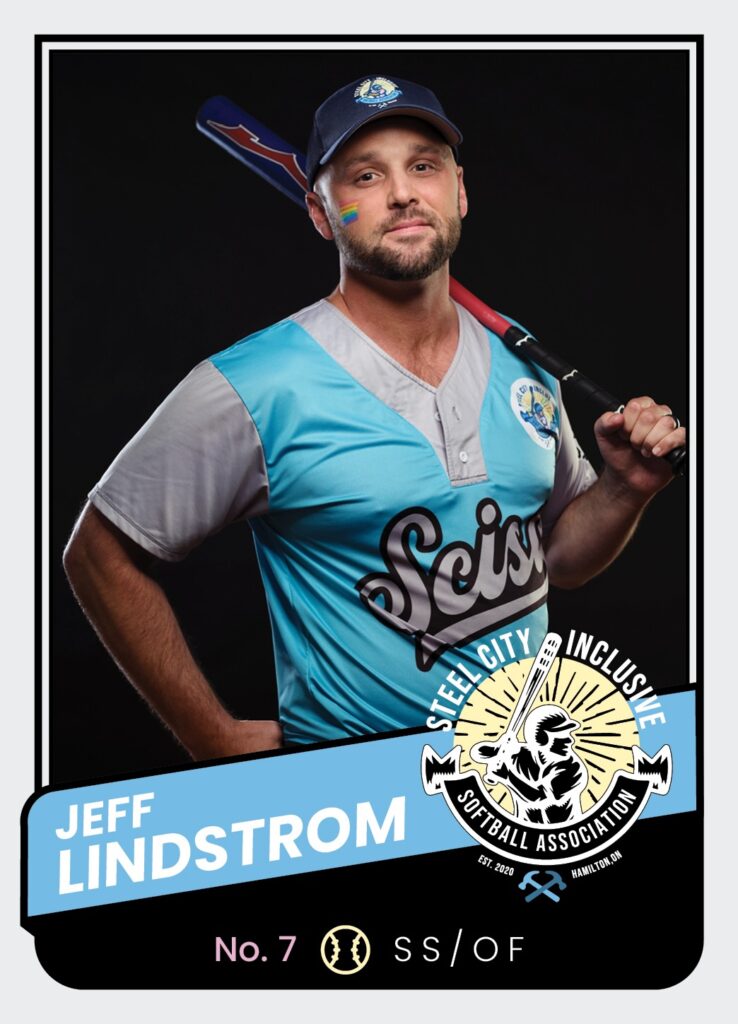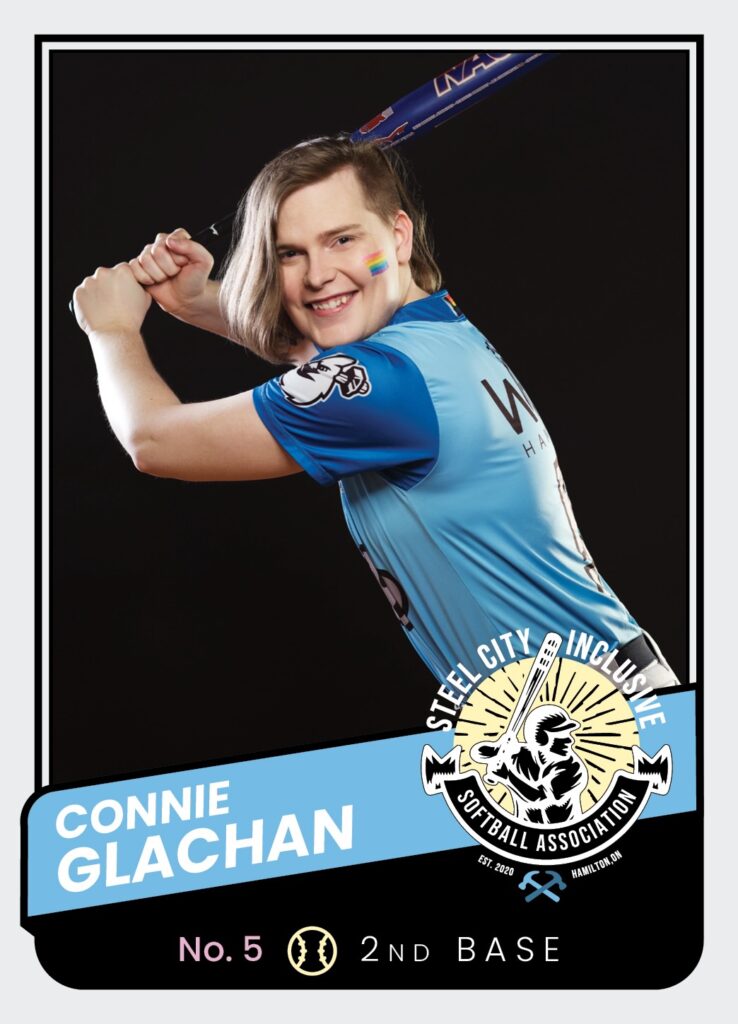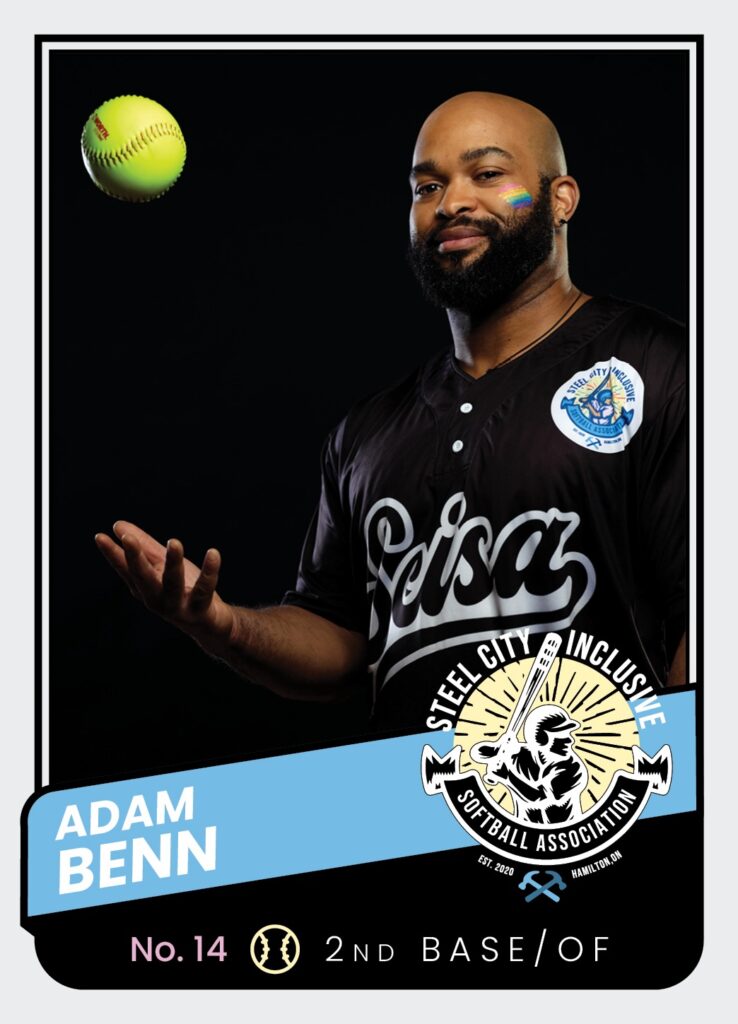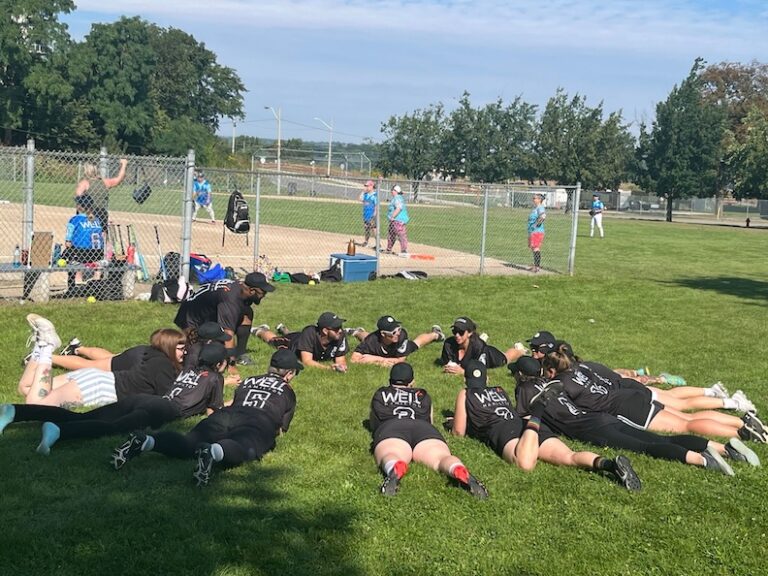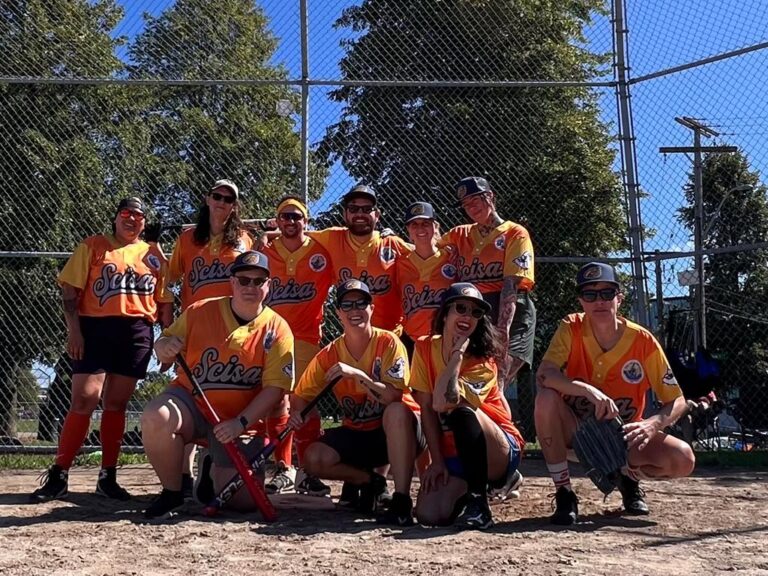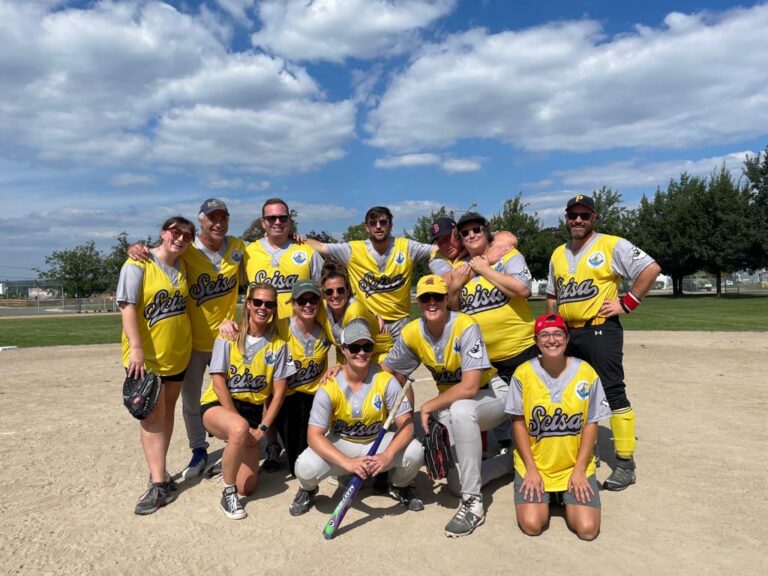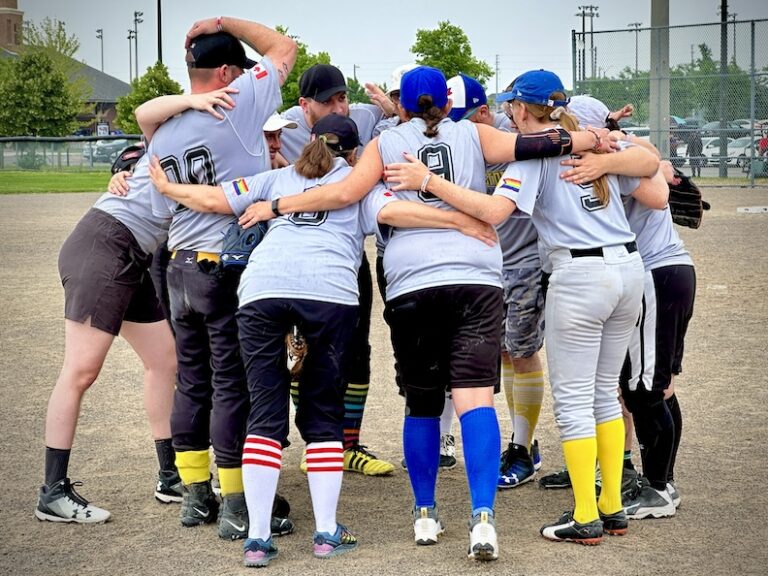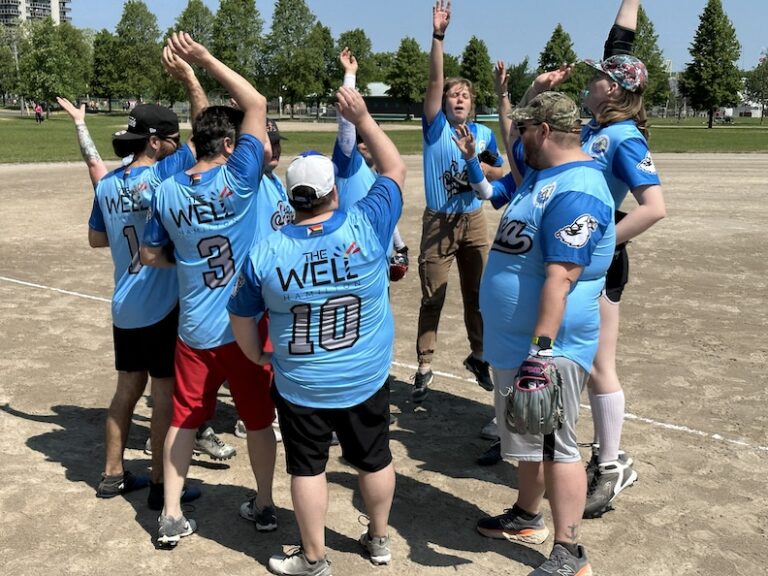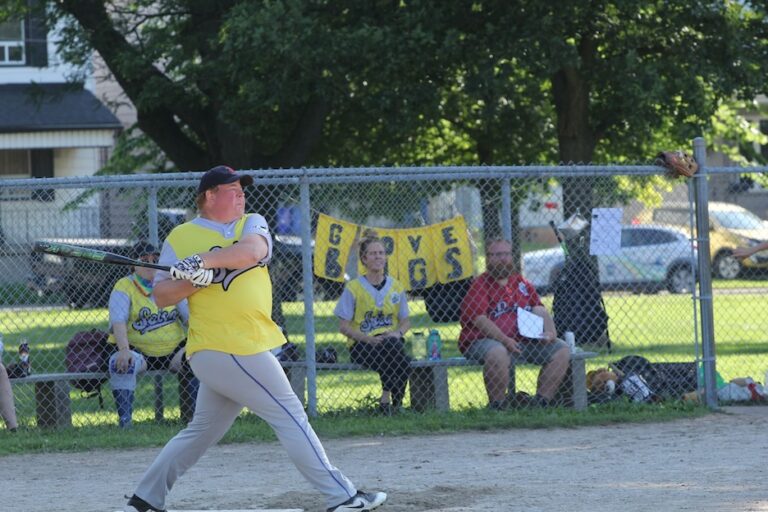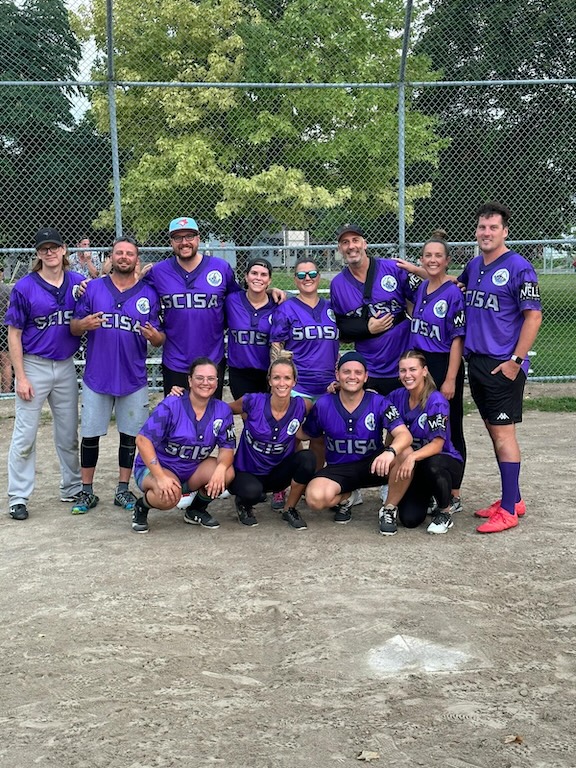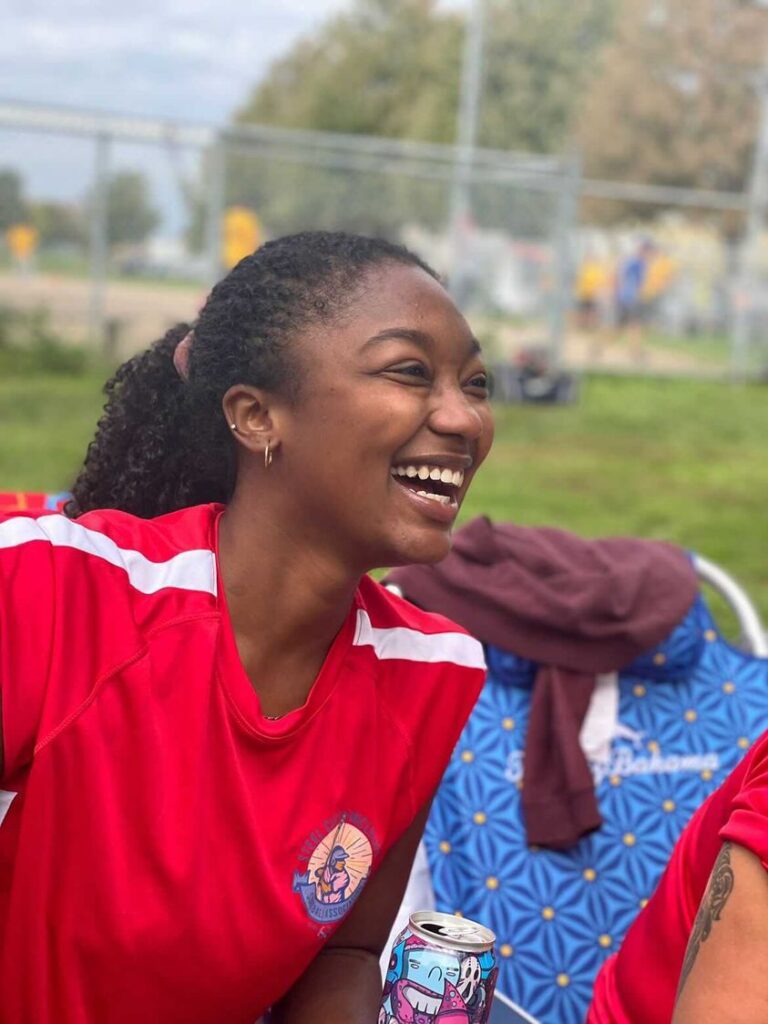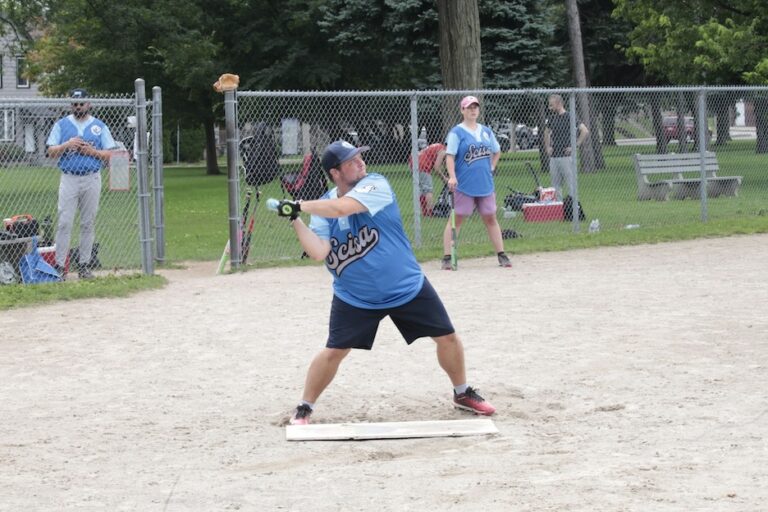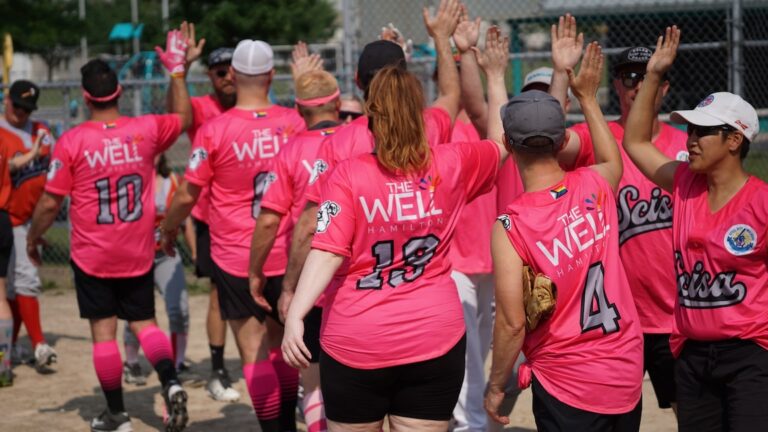A League of Their Own
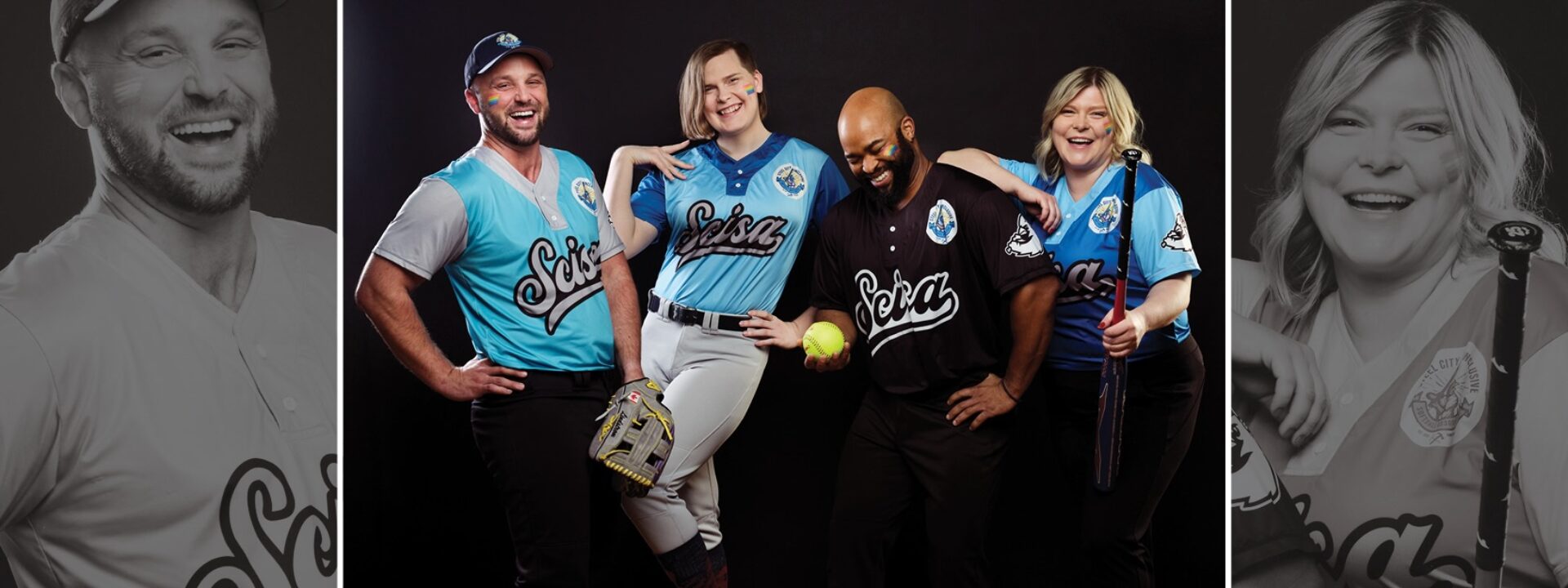
The Steel City Inclusive Softball Association (SCISA) is building a 2SLGBTQIA+ community in Hamilton, offering a sports experience to those who haven’t found a home on the diamond before.
Sports should be for everyone but that’s not always the case.
The Steel City Inclusive Softball Association (SCISA) is tackling that wrong head on.
Hamilton’s 2SLGBTQIA+ slo-pitch league is a safe and welcoming space for queer people and allies to play softball.
The games are important but it’s about much more.
“We welcome players of all sexual and gender orientations, religions, nationalities, body types and abilities. As queer Hamiltonians, we acknowledge that it doesn’t always feel like the city we love, loves us back,” says the SCISA website.
“Involvement with our league will provide an outlet for players and local businesses to show that the future of Hamilton is compassionate and progressive. The love that lives here is stronger than hate.”
Says co-founder and league commissioner Jeff Lindstrom, SCISA means people are becoming friends who wouldn’t otherwise meet.
“This is really building a community. We have people from 18 to into their 60s playing and they are coming from all walks of life,” he says.
“This has exceeded our expectations in every way possible. People, queer or not, have found comfort in our league and created a new relationship with sports.”

Sense of belonging
Connie Glachan didn’t ever think of herself as an athlete. She grew up “an indoor kid” in east end Hamilton, who spent time drawing and playing video games.
Now 28 and living her identity as a trans woman, Glachan was “super-duper excited” about taking to the diamond for the first time in her life. But she missed the opening of the 2023 registration by a couple of days and found herself on the waiting list.
She decided to manifest her desire to get on a team by attending every league practice and social event she could. It worked.
“I was over the moon.”
From there, Glachan dedicated herself to learning everything she could about the rules, techniques and skills of softball. She also put time into improving her fitness, along with her batting and fielding. Glachan discovered the competitive streak within herself and her love for playing on a team.
She won over her teammates and her coach with her effort and attitude right away and then with her growing contributions to the success of the team.
“No one ever made me feel like a burden, no matter how many questions I asked.”
That was true even when she stepped into the competitive side of the league when another second baseman couldn’t play. She struck out more and found harder-hit balls getting past her. It made her work harder.
“Even when I felt bad about how I played, my team never felt that way.”
It all paid off in winning the rookie of the year award for the league.
“I see myself doing this every year to come … I’m really so happy that something like this is happening in Hamilton. So many people are finding their community and sense of belonging on the diamond.”
Glachan joined Lindstrom, Adam Benn and Ashley Letts for a photo shoot with Marta Hewson at the Cotton Factory on a snowy March day that seemed far away from beautiful days for baseball.
But the joy the foursome gets from each other and the prospect of getting out on the field again together soon is contagious.
Benn says he’s been able to meet many people thanks to SCISA because there are plenty of opportunities to spend time with people from other teams. That’s been important to him since he moved to Hamilton from Toronto during the pandemic and didn’t know many people.
“I felt welcome right away,” he says of the league.
Benn, a director of diversity, equity and inclusion for a home healthcare company, did his undergraduate degree at Mac and when affordability drove him out of Toronto, he knew Hamilton was the place to go.
“It’s close to Toronto but it still has its own identity as a city.”
Benn played softball as a kid and was good at it, but eventually he felt like team sports weren’t the place for him.
“The experience of being queer in sports is typically very negative.”
Not only is SCISA changing that narrative for him, it’s also building a sense of queer community.
On game days, people bring lawn chairs, coolers and picnics and spend the day just hanging out. SCISA is capitalizing on that support by offering a new non-player membership option for 2024, along with the chance to register as a substitute callup.
“Even if you don’t want to play, people should come down to the park on game days. It’s Hamilton’s Church Street,” Benn says, referring to the heart of Toronto’s iconic 2SLGBTQIA+ village.
Watch the behind-the-scenes of our cover shoot!
Adding teams
SCISA games are played in the North End at Eastwood Park, right beside Collective Arts at the corner of Burlington Street East and Ferguson Avenue North.
Teams are formed through a yearly draft and every effort is made to make them as balanced as possible to make play fun and safe for everyone.
Games begin after the May long weekend and are played over the next 11 weeks (excluding long weekends) before a year-end playoff tournament. SCISA also holds skills clinics, fundraisers and plenty of social events throughout the year.
In addition to welcoming players and coaches of all sexual orientations and gender identities, and any playing experience and ability, SCISA also embraces those who identify as neurodivergent.
“There are a lot of people who have been traumatized by their experience in sports. They’ve never experienced what it’s like to have 13 or 14 others cheering them on,” says Lindstrom.
The league launched in 2020 and almost immediately had more than 100 people signed up even though its first season was sidelined by the pandemic.
They initially got the word out via social media and through showing up to drag shows and other queer events to answer questions and meet potential players. From the earliest days, Hamilton’s only dedicated queer space, The Well, was a supporter and then a lead sponsor.
Now organizers are trying to manage growing wait lists and people are coming from Toronto, St. Catharines, London and Fort Erie to play.
To address huge demand this spring, SCISA has added two teams to its recreational Sunday league, which will now field 18 teams. Another six teams will play in a competitive division on Thursday evenings.
This year’s registration – 240 spots – filled up in just eight minutes.
“I think this is showing queer people and others how much fun sports can be in a safe environment,” says Ash Moffatt, the league’s communications director. “That’s what’s really growing this league. People are so happy to have found each other.”
Moffatt, a mail carrier and former comedian, grew up in Binbrook. After moving to Toronto for eight years, Moffatt moved back in 2018.
“I think this league is really great for the younger people growing up here now. I certainly didn’t know so many queer people existed when I was growing up in the country. I think it’s amazing all these people are moving here.”
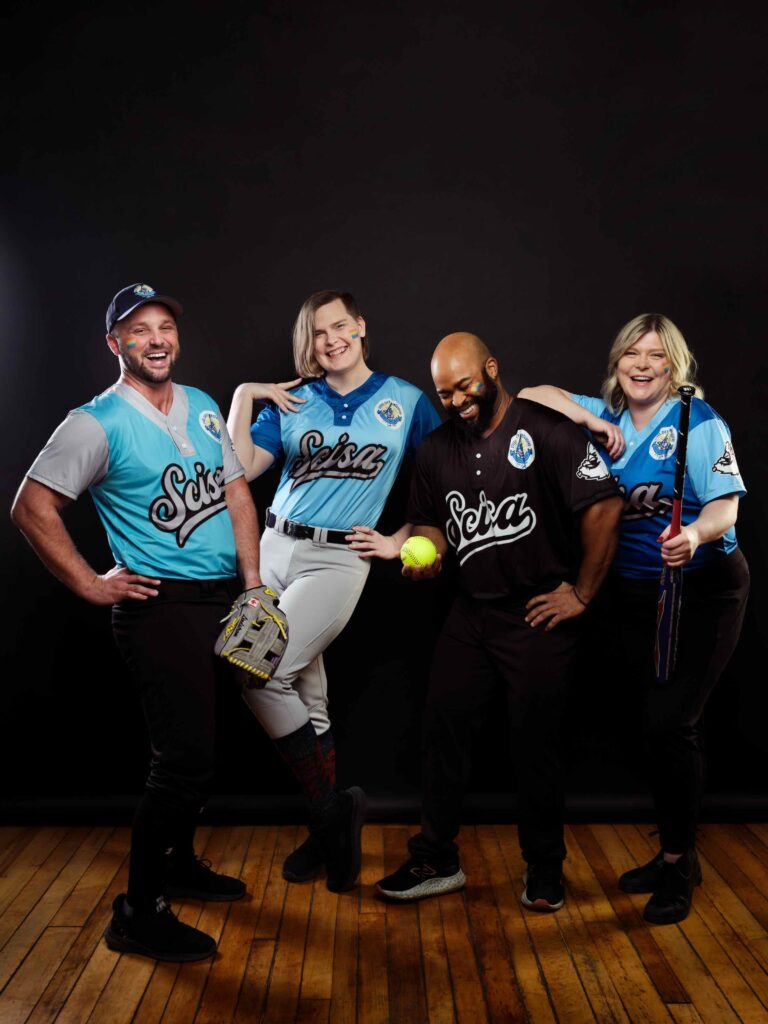
Forming a league of their own
The league is the brainchild of Lindstrom, his husband Rich Sullivan, Letts and Blaine Perry – who were all acquaintances who moved to Hamilton around the same time.
Lindstrom and Sullivan moved here from Houston, while Letts and Perry both lived in Vancouver, where they each played in the West End Slo-Pitch Association.
Letts, whose mom is from Hamilton, spent summers in the city and moved here permanently in 2019. Perry, who is an ally of the 2SLGBTQIA+ community, had arrived a couple of years earlier.
“I was looking for a big life shakeup and my mom had moved back to Hamilton five years before,” says Letts, who is a writer and communications consultant and mom to seven-month-old Wyatt.
“I expected to come here for a while but then move to Toronto, but Hamilton grew on me right away.”
Lindstrom, who grew up outside Chicago, came to Hamilton for a job as a designer and project manager for a play-space company. The city is home now, he says.
“Softball won’t let us leave now.”
The founders reached out to the organizers of the Cabbagetown Group Softball League, which was founded in 1975 when it just wasn’t safe to have any reference to gay in the name. The Toronto organizers shared bylaws, policies and plenty of advice with Hamilton’s upstart league.
SCISA has made connections with the Hamilton Tiger-Cats and The Forge, which now both host Pride nights and offer discounts to the league’s members, and the Hamilton Cardinals have come on board as a sponsor, too.
SCISA was accepted into the North American Gay Amateur Athletic Alliance in 2022, making it the only Hamilton sports league and just the third in Canada to be part of the alliance. NAGAAA launched in 1977 and represents 15,000 athletes in 54 cities.
Lindstrom and others from SCISA travelled to Dallas to deliver a presentation and apply to join the alliance. Membership paved the way for SCISA to send a team to the Gay Softball World Series in 2023 in Minneapolis-St.Paul, which attracted 225 teams. Just three were from Canada.
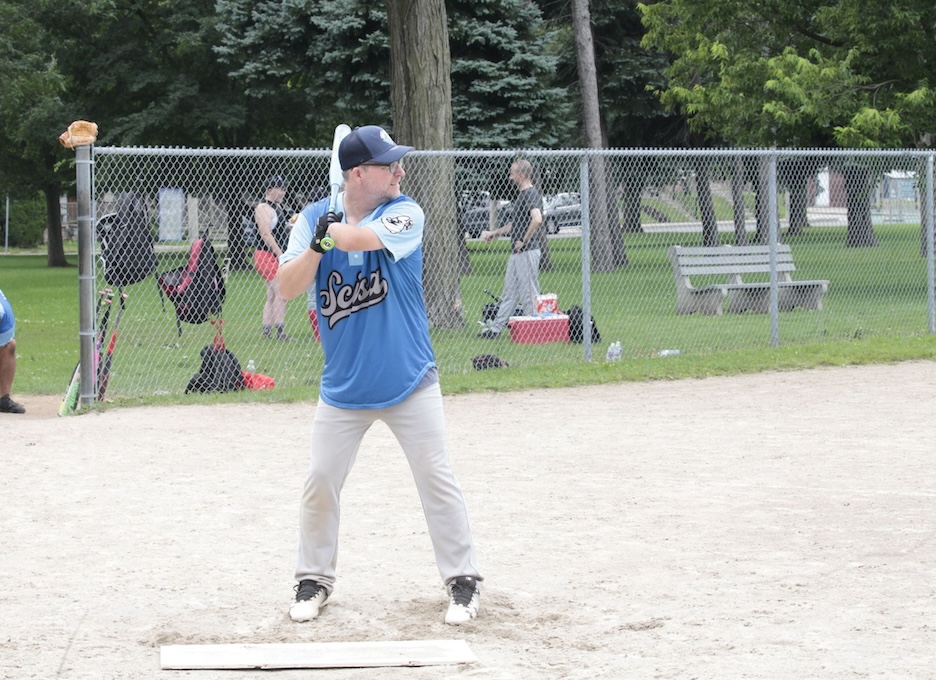
Challenging hate
It’s unfortunate that the work of SCISA is needed, but Hamilton has long wrestled with a reputation – and reality – of hate.
Statistics Canada data shows the city had the country's highest per-capita rate of hate crimes in 2019, 2018, 2016 and 2014.
The city earned national scrutiny after violence erupted at its 2019 Pride festival in Gage Park.
A religious group arrived at the event with homophobic signs, accompanied by yellow vest group members that had been protesting at City Hall.
Several people were injured when the two sides clashed.
Both then-mayor Fred Eisenberger and former police chief Eric Girt apologized after an independent review found the police response was inadequate and failed to protect Pride attendees.
The city also recorded a number of hate crimes reported to police in 2021, with the 2SLGBTQIA+ community among the most targeted groups. Last summer, a downtown resident reported that the front door of her home, which displays Pride flags, was vandalized with a homophobic slur.
The hope, says Letts, is that all the building of community that is happening, after decades of only losing queer bars and other spaces, will lead to more queer-owned and operated businesses, cultural organizations and events to serve the 2SLGBTQIA+ population of Hamilton and area.
And to finally prove – once and for all – that love conquers hate.
It’s certainly working on the courts and rinks. Since SCISA took the field, queer-focused hockey and volleyball leagues have launched in the city and a basketball league is in the works.










